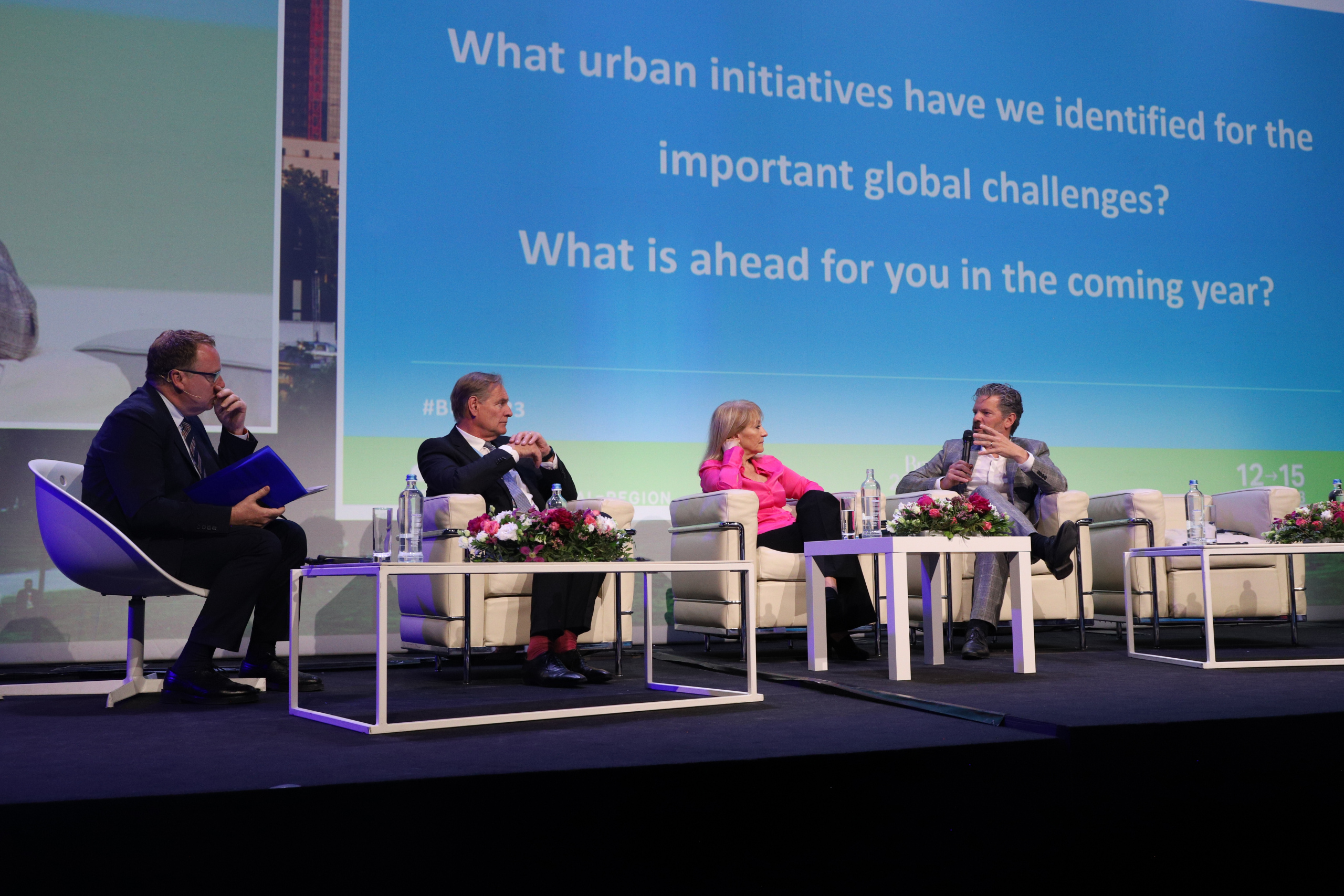Representatives of cities and local governments shared a space for reflection during the final day of the Brussels Urban Summit on 15 June, to summarize the discussions held over these three days.
Greg Clark, urban planner and the moderator of the daily plenary sessions, posed the initial concluding question: what urban initiatives have been identified to address the challenges we are facing, which have been central to the week’s dialogue? The primary realization when cities convene, as highlighted by Carolina Cosse, Mayor of Montevideo and President of United Cities and Local Governments (UCLG), is that, to a greater or lesser extent, we all encounter the same problems. We share a common challenge that compels local governments to devise day-to-day strategies and resolve daily issues. “Each city has its own unique challenges, but there are points of convergence. Cities are the defenders of democracy, and we all play a crucial role in them.”
Dagur B. Eggerstsson, the Mayor of Reykjavik, argued that this gathering of interdisciplinary actors had fostered a new level of energy. “As a collective of mayors, we aspire to champion freedom,” working on similar solutions and sharing knowledge and best practices. Eggerstsson also emphasized housing as one of the most critical issues of our time, contingent on effective management that ensures both accessibility and quality to provide favorable living conditions.
Acknowledging that this Brussels Summit is the first of its kind, Pascal Smet, Secretary of State for Urbanism and European and International Relations in Brussels, highlighted the unprecedented interconnection established among participants: “This historic summit has brought together, for the first time, the world’s largest networks of cities, facilitating unique connections and crossroads between cities globally.” The main challenges, such as migration, social and economic inequalities, lack of opportunities, and climate change, are commonly shared. “It is crucial to unite around these issues, exchanging perspectives, and collaborating with countries currently undergoing expansion or urbanization, as is the case in Africa.”
While much work lies ahead, Greg Clark concluded the Brussels Urban Summit with a final question on what to expect and prioritise in the upcoming year. Burkhard Jung, the mayor of Leipzig and newly elected president of Eurocities, advocated partnerships, prioritizing the defense and promotion of European values, particularly democracy, in confronting both short- and long-term challenges and implementing measures that ensure good governance. “Cooperation is indispensable in finding urban solutions. Empowered cities can tackle today’s challenges, and policy-making at the European Union level cannot be effective without the active participation of cities”.
Carolina Cosse stressed the financial challenge faced by most cities in making long-term investments within the current financial system. Eggerstsson also addressed financing, focusing on economic collaboration at various levels of government and the involvement of the public-private sector. Furthermore, good urbanization can create wealth and opportunities.
In conclusion, it is important to maintain the interconnection forged through the Brussels Urban Summit to address the myriad issues deliberated during these three days of intense debate. Above all, collaboration between organizations and stakeholders is crucial. To impact change, cooperation is paramount. Let us harness our collective power and recognize the potential we possess when we work together.

